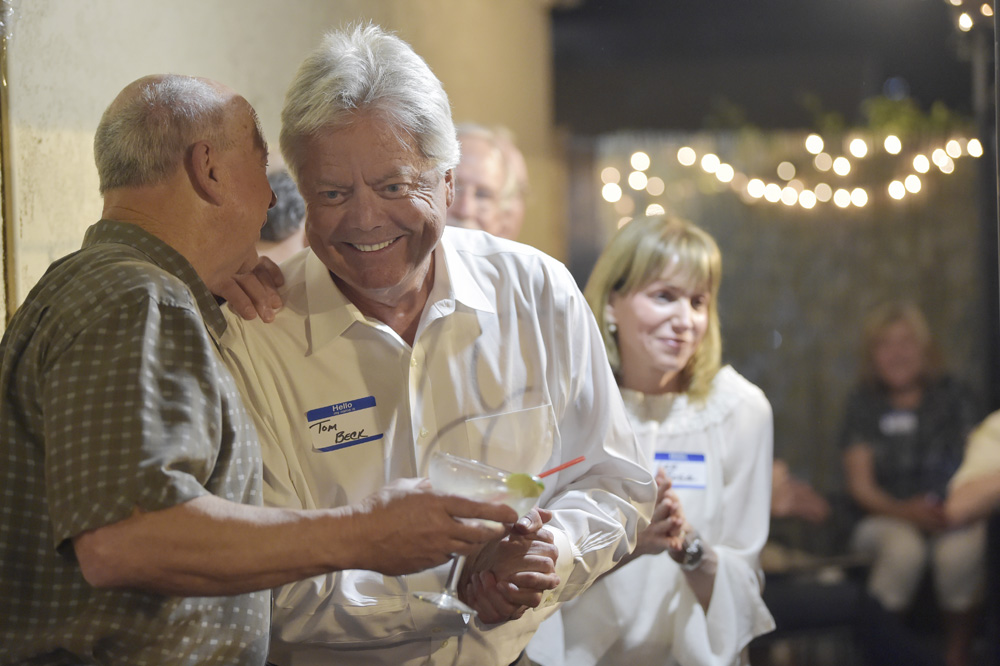
Legal Analyses Illuminate Arcadia Government’s Reasoning for China Trip
BY JOE TAGLIERI
Written correspondence between the Arcadia city attorney and the Fair Political Practices Commission and an internal city document reveal key aspects of the reasoning behind a now cancelled trip by city officials to China and Taiwan.
In response to concerns of residents and government transparency advocates expressed at Arcadia City Council meetings and in press reports, officials pulled the plug on plans for a sizable delegation of council members, department heads and relatives to tour various Chinese and Taiwanese locales.
The controversy stemmed mainly from Mayor John Wuo’s solicitation of three $10,000 donations from private donors to help cover the delegation’s travel expenses. Two contributors were friends of the mayor linked to Chinese companies, and the third donation came from a Chinese real estate developer with companies based in the San Gabriel Valley.
Leading up to the first public disclosure of the trip plans and donations at a Feb. 3 council study session, City Attorney Stephen Deitsch sought advice from the Fair Political Practices Commission, or FPPC, on how to best advise Arcadia’s council and high-ranking staff members on staying within legal parameters that govern such official excursions.
A Jan. 23 letter from FPPC attorneys John Wallace and Emelyn Rodriguez identifies several questions Deitsch was exploring that centered on the pursuit of sister city ties with Chinese municipalities and rules pertaining to gifts to officials ranging from monetary donations for travel expenses to meals and lodging from Chinese governmental entities.
While officials highlighted greater cultural understanding and sister city relationships as the trip’s primary focus, the FPPC advice letter reveals that real estate investment was another motivating factor for the tip. It refers to plans for official visits to parks, libraries, monuments and other culturally significant places on the national level such as the Great Wall and Tiananmen Square with a fact-finding component geared toward attracting Chinese investment in Arcadia’s real estate market.
“Your facts indicate the tours will be used to understand development and land use in these cities, particularly any culturally unique aspects,” the letter states, citing a Nov. 26 letter the commission received from Deitsch. “The City will use the information obtained to market and seek investment into the City from Chinese and Taiwanese developers looking for real estate investment opportunities within the City. Also, you state that the City will be able to better serve its constituency in its planning decisions by better understanding the cultural aspects of urban design.”
A notable area of the FPPC’s analysis and Deutsch’s eventual advice to the council centers on whether or not pursuing sister city relationships equates to “official agency business.” The FPPC attorneys and Deitsch both cite different California statutes to support their conclusions.
“May the City pay for activities related to promotion of a sister city relationship?” Deitsch posits in a Feb. 2 memo to council members. “Yes. Section 37110 of the Government Code specifically authorizes cities to spend funds promoting sister city relationships. To the extent any expenditures are for the development of a sister city relationship, or travel expenses thereto, the City may make expenditures.”
The FPPC took a seemingly different view, citing the California Code of Regulations, which specifies the commission’s oversight scope.
“Funds collected for international travel that include the exploration of a potential sister city relationship in a foreign country does not constitute ‘official agency business’ pursuant to Regulation 18950.1,” Rodriguez wrote.
She also concluded that under the facts provided by Deitsch, “We cannot find that payments made by private companies to the City to be used for international travel and accommodations in China for public officials and their spouses fall within the intended parameters of Regulation 18950.1, even if part of the trip involves sister city relationships.”
As a way of legally navigating around the prohibition of private funds donated for officials’ travel expenses, the $10,000 donations were said to be “unencumbered” and destined for the city’s general fund where the money could be used for other expenses that serve the public interest.
“The FPPC letter was helpful and gave significant guidance,” Deitsch said in an interview. “Our memo is consistent with the FPPC letter.”
The City Attorney added: “It’s not official agency business for purposes of 18950.1 for whether a private corporation can provide funding for travel. The three donations were given to the city’s general fund.”
Deitsch further underscored this in his memo: “Our understanding is that the proposed donors intend to make an unconditional donation, and so the funds will be available for any City use. The proposed travel to China and Taiwan is one option, but the City Council will be able to use the funds for a different purpose if it so chooses. The FPPC has suggested that the City should only approve the use of the funds after considering other alternatives at a public meeting.”
After denying requests for interviews with Wallace and Rodriguez, FPPC spokesman Jay Wierenga said via email, “We aren’t going to be able to comment on a city attorney’s letter to their council, as we can only comment on the advice letter we provided.”
In response to the trip’s cancellation Arcadia Chamber of Commerce President Scott Hettrick suggested the option of city staff members utilizing chamber-sponsored trips to key Chinese destinations.
“Mayor Wuo and [City Manager Dominic] Lazzaretto said they would consider an option down the road to encourage city staff to take advantage of trips to China organized by the Arcadia Chamber of Commerce and other Chambers all over the country that offer nine-day guided-tour trips to any member of the public … to the mainland China cities of Beijing, Shanghai and Xi’an … for only $2,199,” Hettrick wrote in a blog posting. “Such trips can be assembled on a very quick turnaround — as little as a month in some cases, or can be booked months and even a year or two ahead of time.”

